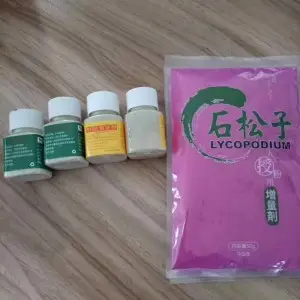aŭg . 12, 2024 10:24 Back to list
Exploring the Benefits of Pear Flower Powder for Enhancing Pollination in Agricultural Products
The Role of Pear Flower Powder in Pollination Products
Pollination is a critical process in the life cycle of flowering plants, influencing the yield and quality of fruits and seeds. In recent years, the use of pear flower powder has emerged as a novel approach in enhancing pollination, thus contributing significantly to agricultural practices. This article explores the benefits and applications of pear flower powder in pollination products, shedding light on its importance in sustainable agriculture.
Pear flower powder is derived from the blossoms of the pear tree (Pyrus spp.), a tree that thrives in temperate climates and is renowned for its fragrant flowers and delicious fruits. This powder is rich in pollen, which is a crucial component in the pollination process. When utilized in pollination products, pear flower powder serves not only as a source of nutrition for pollinators but also enhances the efficacy of the pollination process itself.
One of the primary advantages of using pear flower powder in agricultural settings is its role in attracting a diverse range of pollinators. Bees, butterflies, and other insects are drawn to the pollen and nectar of pear flowers. When used in the context of pollination products—such as sprays or powders designed to nurture birds and insects—this natural attractant can significantly boost the presence of beneficial pollinators in orchards and farms. Increased pollinator activity leads to improved pollination rates, resulting in higher fruit set and better-quality crops.
pear flower powder for pollination products

Furthermore, pear flower powder is an eco-friendly alternative to synthetic pollination aids. In an era where agriculture is increasingly scrutinized for its environmental impact, using natural products like pear flower powder aligns with the principles of sustainable farming. This powder comes with the added benefit of being biodegradable and non-toxic, reducing the ecological footprint associated with conventional chemical pollinators. Farmers who adopt pear flower powder as part of their pollination strategy can therefore promote both crop yield and environmental sustainability.
In addition to its attracting properties, pear flower powder is packed with essential nutrients that support the health of pollinators. The powder provides a rich source of proteins, vitamins, and minerals that can enhance the vitality of pollinator populations. Healthy pollinators are more effective at transferring pollen, resulting in improved fertilization and fruit development. By promoting the health of pollinators through the use of pear flower powder, farmers can create a positive feedback loop—healthy pollinators lead to better pollination, which in turn supports the longevity and productivity of pollinator populations.
Adopting pear flower powder in various agricultural practices can also help farmers cope with the challenges posed by declining pollinator populations. Habitat loss, pesticide use, and climate change have all contributed to the decrease of pollinator species. Implementing a strategy that incorporates natural products like pear flower powder can provide a lifeline for these essential creatures, aiding in their conservation while simultaneously improving agricultural outcomes.
In conclusion, pear flower powder represents a promising solution in the realm of pollination products. With its ability to attract and nurture pollinators, enhance the efficiency of the pollination process, and contribute to sustainable farming practices, this natural powder plays a vital role in modern agriculture. As we continue to face challenges in food production and environmental conservation, the integration of pear flower powder into farming strategies may well be a key step toward achieving a more resilient and productive agricultural landscape. By fostering a healthier ecosystem for pollinators, farmers can ensure a brighter future for both their crops and the environment.
-
Eco Fruit Paper Bags for Peak Freshness | Durability Focused
NewsJul.31,2025
-
Pollen Peach Tree for Pure Pollination and High-Quality Peach Pollen
NewsJul.30,2025
-
Premium Cherry Pollen for Pure Pollination & Different Types
NewsJul.30,2025
-
Artificial Pollination Solutions for Various Plant Pollen Types
NewsJul.29,2025
-
Artificial Pollination Solutions for All Plant Pollen Types
NewsJul.29,2025
-
Premium Plant Pollen for Pure Pollination & Pollen Block Solutions
NewsJul.29,2025